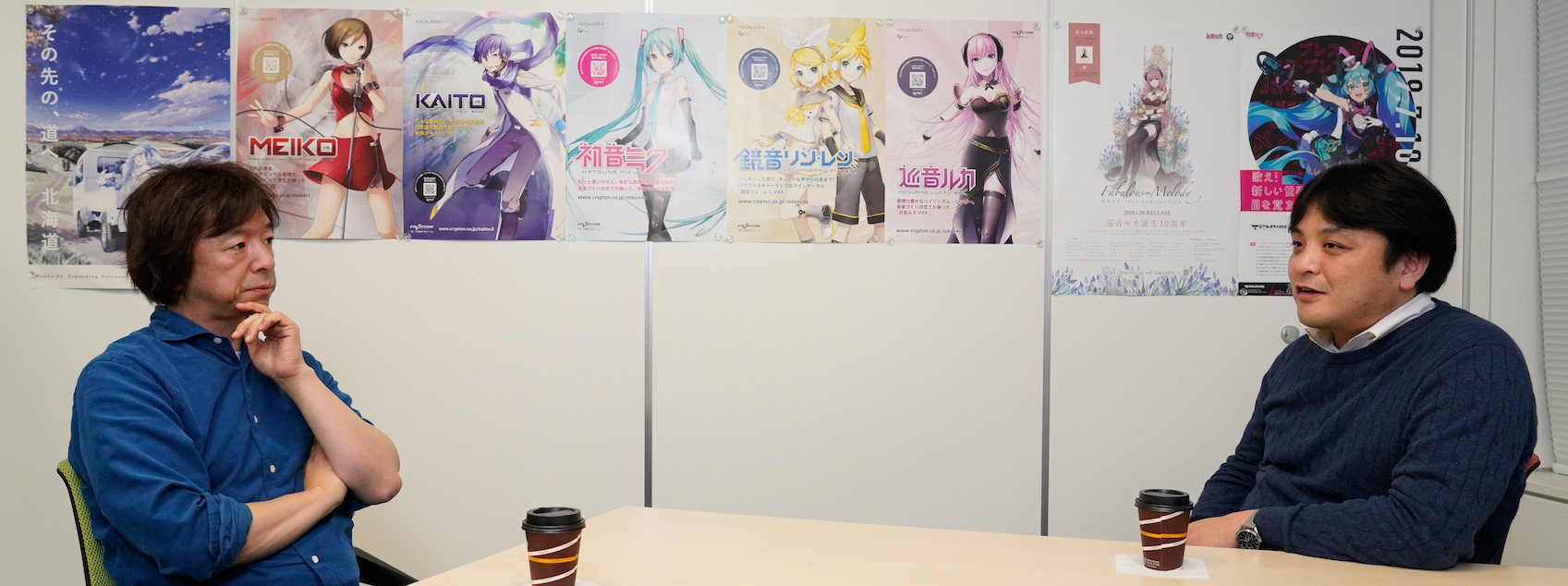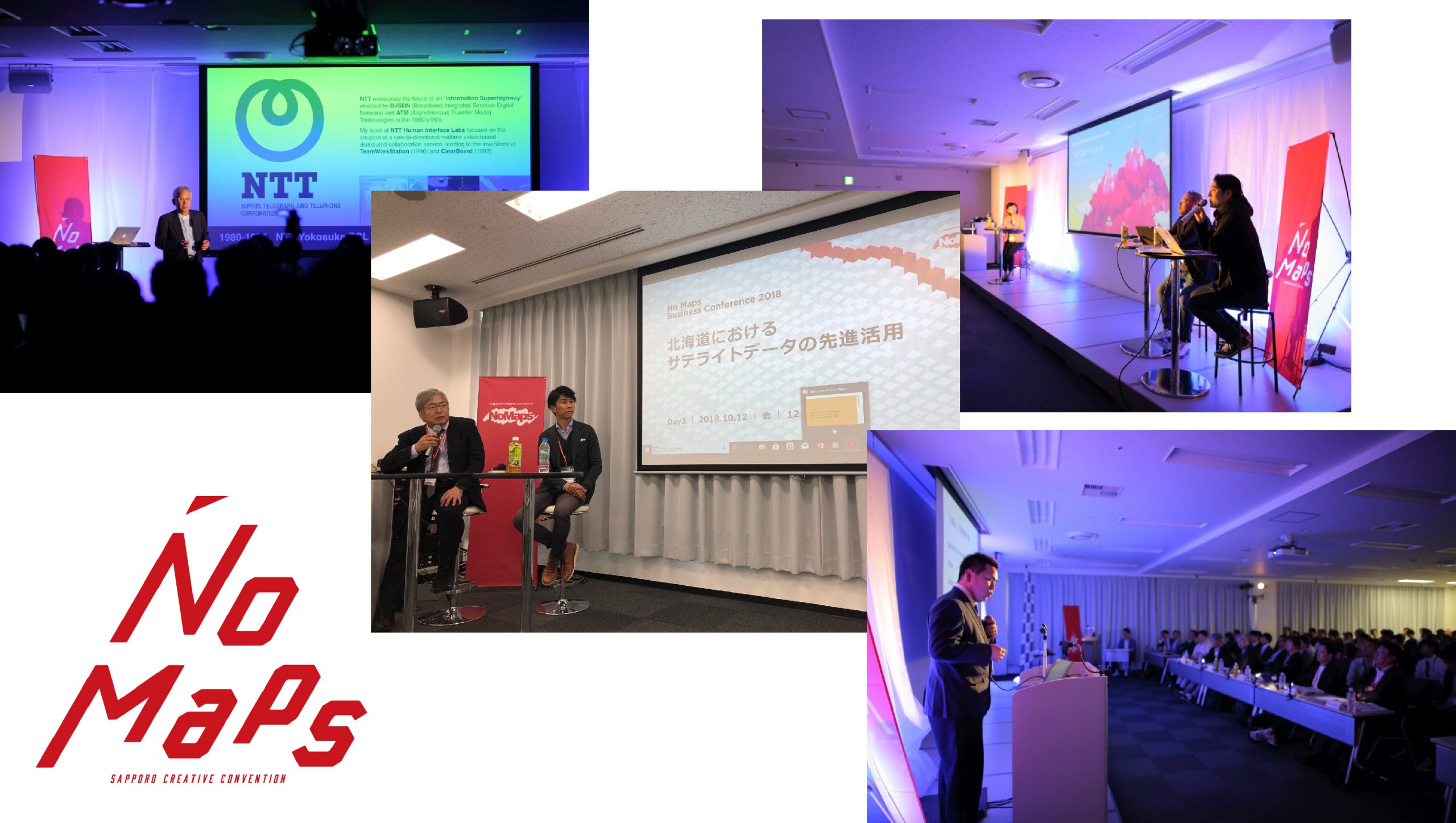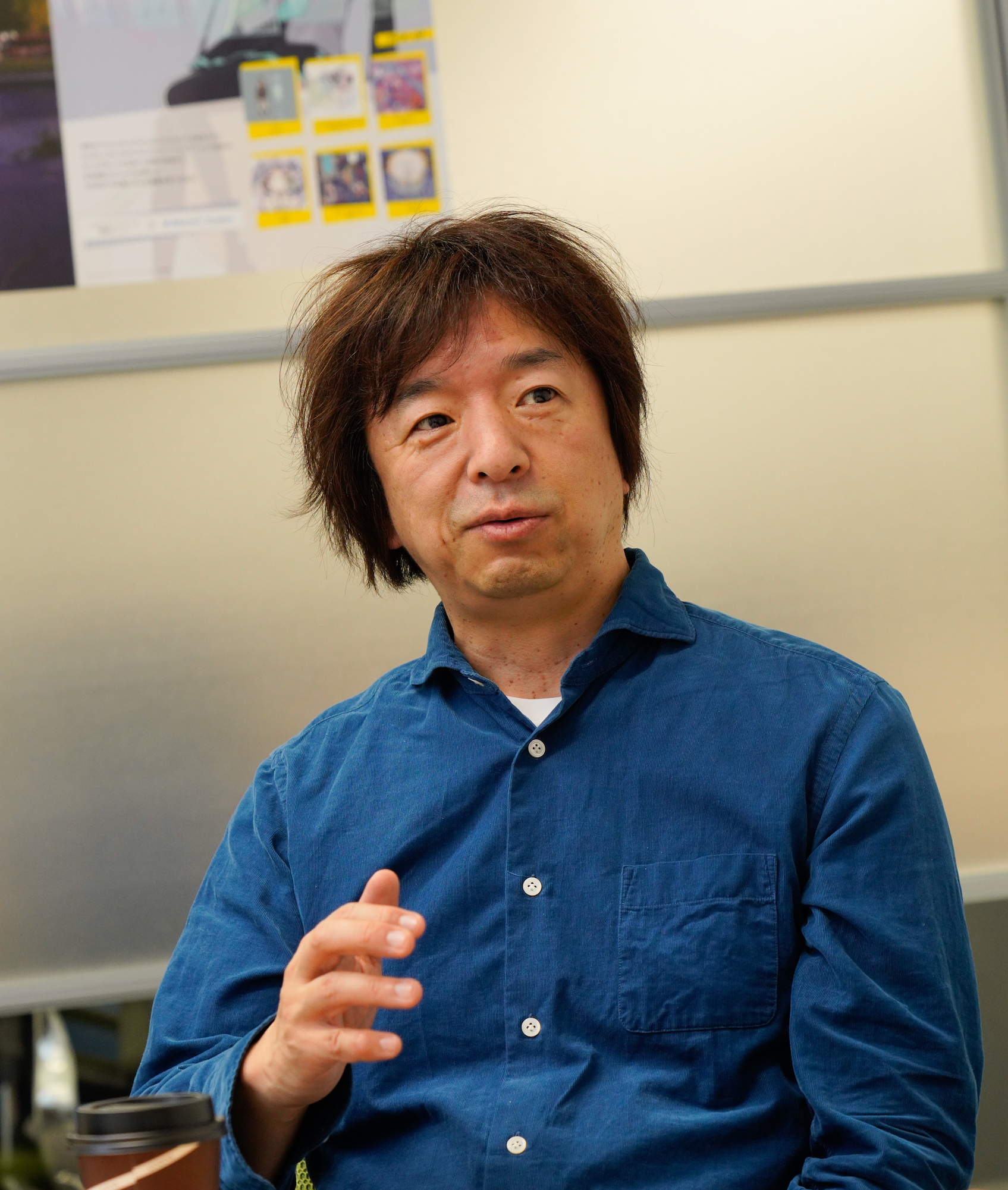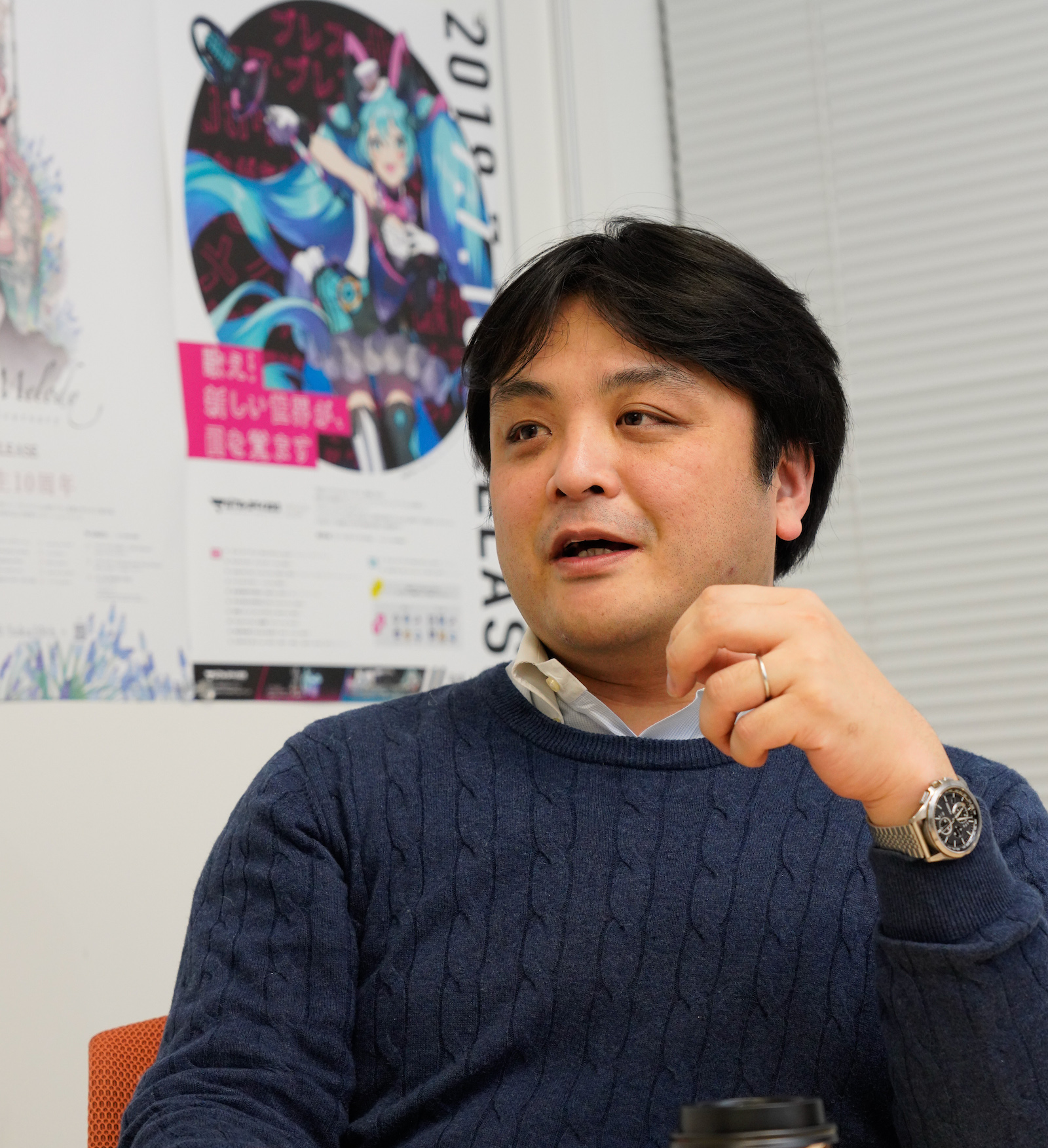伊藤 博之氏
クリプトン・フューチャー・メディア株式会社 代表取締役/NoMaps実行委員長/北海道オープンデータ推進協議会理事長/北海道情報大学客員教授
北海道大学に勤務の後、1995年7月札幌市内にてクリプトン・フューチャー・メディア株式会社を設立。世界各国に100社以上の提携先を持ち、3000万件以上のサウンドコンテンツは世界で最大級。DTMソフトウエア、音楽配信アグリゲーター、3DCG技術など、音を発想源としたサービス構築・技術開発を日々進めている。ボーカル音源ソフト「初音ミク」の生みの親としても知られている。2013年に藍綬褒章を受章。
和田 陽一郎氏
株式会社D4cアカデミー 取締役社長兼学長/株式会社データフォーシーズ 執行役員/九州大学大学院システム情報科学研究院客員准教授/北海道大学理学研究院客員教授
東京工業大学大学院にて博士号を取得後、2008年株式会社データフォーシーズ入社。以後、10年以上に渡りデータサイエンティストとして活躍、マーケティングや金融の分野を中心に、多数のプロジェクトに参画。データ解析のみならず、システム開発、データ解析チーム構築のコンサルティング等も行い、プロジェクトリーダーとして数々のプロジェクトを成功に導く。2009年には、経営科学系研究部会連合協議会の主催するデータ分析コンペティションにて優秀賞を受賞。
※プロフィールは対談を行った2019年12月当時のものです。

(前編はこちら)
視点を増やすリベラルアーツ、価値を見出すアート
伊藤:
課題に気付くってことをスキルとして得るのは本当に大変だと思うんです。経験も必要だし、学問の基礎から応用、専門分野を超えて幅広く学んで、いろいろな角度から物事を見ることがすごく大事。だから、さまざまな分野が集まっている北大のような総合大学で学べる利点は大きいですよ。
和田:
おっしゃる通り。北大は幅広い分野の学部、専攻が充実しています。学生がリベラルアーツを体得する場として、素晴らしい環境が用意されていると感じます。ちなみに私の出身の東工大は理系の学部しかないけど、大学院には文系もあってリベラルアーツを重視しています。いろんな角度から物事を見るセンスを大事にしているのかなって思います。
伊藤:
ただ、北大に足りないピースって芸術だと思うんですよね。芸術系の学部がない。
和田:
日本の総合大学はないところの方が多いですけどね。九州大学は芸工大と統合しましたが、これは稀なケースです。確かにアートの学びって本当に欲しいです。
伊藤:
北海道の大学では全体的にアートを学べない。北海道でビジネスの話をしてもピンと来ない理由は、まさに付加価値をつけるファンクション、いわゆる人の心に届くものに仕立てるアートの力が少ないからです。
日本の都道府県別の農業産出額で北海道はダントツで一位ですが、付加価値率だと44位くらい。圧倒的に魚は魚で出荷して、肉は肉だし、そこに付加価値を付けて、貰って嬉しくなるお土産だとか加工品として出荷するとか、あるいはレストランとワイナリーが共同でワインツーリズムを企画して、思い出と共に北海道の食べ物を好きになってもらうツアーにするなど付加価値の発想が少ないんです。
その原因のひとつに芸術系の大学が少なくて、そもそも芸術を学んだ人たちを起用しようとする経営者や自治体が少ないから当然の結果です。今一番足りないピースはアートだと思っていました。だからNoMapsを立ち上げて、市民がアートを通して地域に誇りみたいな感覚を持ち始め、新しい価値観、文化の形を発信できるようにしたかったんです。
和田:
確かに。素晴らしい取り組みですよね。僕もNoMapsに参加させてもらって「北海道におけるデータサイエンスのミライ」と題してお話させてもらいました。やっぱりデータサイエンスの知識もセンスも足りないし、その価値に気づいてほしいと感じたからです。

伊藤:
データサイエンスも、どこにツボがあるか見つけるセンスはアートにつながっていると思うんですよね。
和田:
最近、STEAM教育って言葉も浸透してきたじゃないですか。最初に広がったのはSTEMでScience、Technology、Engineering、Mathematicsだったのが、今はArtが入ってSTEAM。やっぱりArtが大事だってみんなが気付き始めている。
私は最近の小学生向けプログラミング教育に賛成の方じゃなくて、図工とかもっと真剣にやらせた方がいいと思っています。私だって別にプログラミングなんて就職するまでやったことなかったけど、図工は大好きで、油絵も子どもの頃やっていたし、木とかでなんかいろんなものを作るのが好きだったんですよ。ものを作るセンスって育てていかないと育たないし、それが実は人間らしい仕事っていうか、付加価値につながると思うんです。
初音ミクなんて、ぶっちゃけボーカロイドとしての機能をそのまま魚は魚として出荷するみたいに世に出していたら、こんなムーブメントにならなかったでしょ。初音ミクはもう付加価値の塊で、そうじゃなかったらたぶん世界と戦えてなかった。やっぱり世界と戦うって付加価値をつけることだと思うんですよね。
データサイエンスが牽引するパラダイムシフトへ
和田:
データサイエンスもそうで、例えば北海道の農業に対してデータを使ってどんな付加価値を生み出すかってところでしょ。
伊藤:
例えば、このコップを見たときに、コップだと思っていたら実は違う機能に気が付くように、データ分析してみると違う側面に気が付く。じゃ、どういう仕組みが隠れているんだと仮説を立てて調べて行って見つける、みたいなね。これってセンスっていうか・・・
和田:
そういったセンスを持った人が仲間に欲しいけど、どんな経験や教育を受けるとそうなるのかを考えると、たぶんいろんな経験をしていて……
伊藤:
たぶんものすごくいろいろ失敗している人(笑)。
和田:
そう!いろいろ失敗しているってことは、それだけトライしたことがあるってことですよね。若い人たちに正解だけを求めているうちはダメですね。これって、データサイエンスの分野だけでは解決しないですけど。
伊藤:
データサイエンスって教科書通りみたいな考え方で成り立っているって思われがちだけど、意外とセンスや直感力が問われている。
和田:
モロそうだと思います。
伊藤:
パッションがきっちりした人がデータサイエンティストに向いているんじゃないかな。アートなセンスを持っている人とかね。
和田:
必要な気がします。実際Googleのエンジン作っているのはデータサイエンティストですけど、最初にあれをやろうっていったラリー・ペイジやセルゲイ・ブリンのすごさってもうアートの域じゃないですか。既存の大量の情報を検索で再整理することで、ものすごい付加価値をつけちゃったわけでしょ。
伊藤:
数式で「こういうことが言えます」っていうのもかっこいい。
和田:
問題設定をラリー・ペイジやセルゲイ・ブリンがやった後に、それに対して一生懸命精度を上げていく人がいるんだけど、でも最初にあれを考えついちゃったブリンやペイジは最高にかっこいい。
伊藤:
データの価値を見つける時って、みんなお金に換算しようとするじゃない。ひとつの指標としてはいいけど、僕は前からそんな価値観に違和感があったんですよね。データサイエンスとかAIって、お金で数値化できないモニョモニョとしたものを入れるとモニョモニョとしたものが出てきて、それを見て人間は納得するってことなのに。例えば、この写真を風の絵に変えてください、風のメロディにしてくださいって、そうするとモニョモニョしたものが出てきて、人はそれを見て、それを聞いて気持ちいいみたいなことは新しい価値観で捉えないとできないよね。
和田:
もちろんその中では、数値化して関数化しているわけですけど、普通の景色をゴッホ風の絵に変えちゃうのが最近の技術ですよね。そこにいきなり「お金」というのは古い話で、そこは「何か楽しい」っていう「お金」とは次元の違う評価をして良いんだと思います。それが新しい価値観となるのかもしれない。
伊藤:
人間の取引の歴史は、なにかいいことをしてもらったら、それに見合うなにかいいことを返そうっていうことが物になり、わかりやすいお金になった。
でも、サイエンスやテクノロジーでモニョモニョとした状態のものをモニョモニョとしたまま扱えるようになって、いちいちお金に換算しなくなったら、「なにかいいこと」が本来の人間の感覚に帰ってくるんじゃないかって思うんです。それが社会実装されるには膨大な配列を解くみたいな裏側の世界が必要だろうけれど、人間にとって柔らかい価値になっていく気がする。そんなパラダイムシフトが必ず起きると思います。
和田:
うん。おっしゃりたいことはよくわかります。そういう社会が生み出されることが目標であるべきだし、それが我々の責任なのでしょう。

札幌、博多が東京を変える
伊藤:
東京に直下型地震くるよねってみんな知っているわけですよね。東京に人が住んでいて、政府があって、下手したら日本の経済システムも壊れて、地方が頼っていた補助金なんて何も出なくなるわけですよ。だから、変わらないと思っていることが変わる日がくる前提で考えなくちゃ。
北海道って東京とちょっと距離があって、東京ほどの壊滅的な被害が起き難いと想定すると、どんな社会を北海道が開けるのかなって視点がすごく重要だと思うんですよね。
和田:
東京だろうと、南海トラフかもしれないし、札幌で何か起きるかもしれないけど、どこで起きても生き抜ける社会ってどんなものだろう……
伊藤:
例えば、九州は九州で、北海道は北海道の経済圏があって、それが繋がっているとどちらに災害が起きても強い日本になる。今はなにもかも中央政府が決裁権持っちゃっていて、予算もそうだし、だから日本はすごく弱いよね。これって、地方が中央に頼ってばかりで独立していないからでしょ。
和田:
そうですね。弱いですね。東京に生まれた時から住んでいる身としても、東京になんでも集まってきちゃうことが非常に東京を住み難くしています。私がデータサイエンスの拠点を札幌や博多でやりたい理由って、「もう東京に集まらなくていいよ」って気持ちがあったからです。
一方で、東京で地震があったら壊滅するだろうなんて諦めないで、ハードもソフトも備えて蓄えて、東京が助かる知恵と工夫に貢献していきたいです。
伊藤:
東京がピンチの時に博多と札幌が独立して元気だったら、東京を救う力になれる。それが、東京に頼っている体質のままだと諸共倒れちゃう。
和田:
九州や北海道とかが賑わって、東京にしがみついて住む価値が減って、勝手にみんな分散して住み始めたら天災で亡くなる人を減らすことができる。
伊藤:
震災があるから東京を出ていくより、魅力的な街があるからそっちに行きたいなって思ってもらいたいけどね。
和田:
東京が少し空いたら、震災の準備を整えていくというのがいいシナリオだと思っています。とにかくもうこれ以上東京に一極集中させない。だから、札幌や博多でビジネスができれば日本は変わっていきますよ。
札幌や博多がそれぞれ魅力を増すためには若い人たちが問題解決能力とかクリエイティブとかアートのセンスなどを学んで、それぞれの地域に留まれるようにしなくてはいけない。そのためにはビジネスがなくては。シゴトを創らなくては。

自らシゴトを創るマインド
和田:
実際、伊藤さんが札幌でシゴトを創った経緯って何だったんですか?
伊藤:
インターネットを早い時期に見たからなんですよね。1990年代のことです。北大の職員をしている時に、一早くインターネットが入ってきた。僕だけじゃなくて他に何千人も見ていたけれど、僕はそれを見て、「これは公務員をやっている場合じゃないぞ」って思ったわけ。
当時知り合いのアーティストがスイスにいて、コラボで音楽やろうってフロッピーディスクを送り合っていました。送ると向こうが曲を付けて送り返してくる。往復するのに1か月とか2か月とかかかると、その前の着想って完全に飛んじゃっているので、全然コラボにならない。向こうもたぶんそう思っていたはずで、それがインターネットを使うと瞬時にやりとりできて、1日に何往復もできる。他にもああいうことにもこういうことにも使えて、やばい!こんなこともできるじゃん!みたいに想像していったら、これはもうこっちのことやったほうが絶対楽しいし、儲かるって確信して会社を作ったんです。
インターネットができたタイミングにいても、当時の学生にはトヨタやソニーみたいな成功しているジャイアント企業のほうがキラキラして羨ましく見えていて、そういったところに就職しようとしていたけれど、僕は20年後に羨ましがられる会社を創りたかった。今だってそんなネタがボコボコあるのに、目先のキラキラに行こうとする若い人が多いよね。
和田:
自分で法人を持ってみて思うのは「やるかやらないか」なんだろうと。社長だけは自分が社長だって言い出した時から社長になれます。起業するって恐ろしいことのように思っている人が多いですが、登記すれば誰でも社長になれます。大企業に一生懸命に面接を受けて選んでもらうことに比べたら、なんて簡単なことか。
興味があるもので飯を食おうって思った瞬間から社長ができるわけで、やってみればいいだけで、何にも損もしないし、やってみる間にやれることが見つかったりする。
伊藤さんも起業した時はインターネットのことやっていて、最初から初音ミクで起業したわけじゃないでしょ。でもたぶん自分がスタート切ったら、やっていく中で生まれるものがある。
伊藤:
そう、やっている中でいろいろと生まれてくるんですよ。やっているとね、あることに詳しくなる。そのあることだけに固執しないで、別の違うところでノウハウを培う。そうすると段々とできることが増えていく。
和田:
やってみて、なんなら100万円くらい失ってみたっていい。ああやっちまったって思う事が人生のすごい財産になるんで、100万は安い授業料です。10万でもいいし、やって金を溶かしてみれば、何をやるべきかがわかる。
例えば、北海道大学の授業として全員に会社登記させるのはどうですかね。授業履修する時に屋号決めて登記してきてくださーいって言って。就職をすることになっても、「社長経験あり」というのは強いし、会社失敗しましたというすごい経験を持っていることは貴重です。
伊藤:
失敗を恐れて、自分でシゴトを創るって発想を持たないのは、とにかくもったいない。どんどんトライしてほしいし、それを応援するのが我々の役割です。
